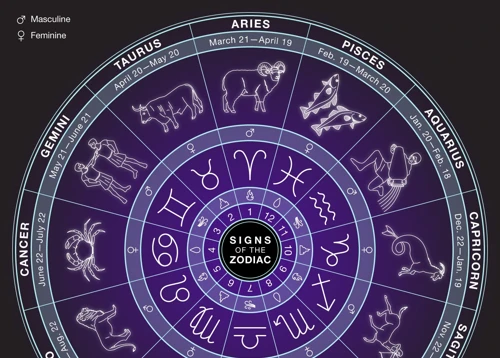Astrology and the Zodiac signs have long fascinated people all over the world. The age-old practice of astrology holds the belief that celestial bodies, such as the sun, moon, and planets, can influence human behavior and personality traits. In this comprehensive article, we will dive deep into the connection between astrology and the twelve Zodiac signs, exploring their meanings, compatibility, and influence on various aspects of life. Whether you’re a skeptic or a true believer, join us as we unravel the mysteries of the stars and uncover the fascinating world of astrology and its role in shaping our lives.
The Basics of Astrology
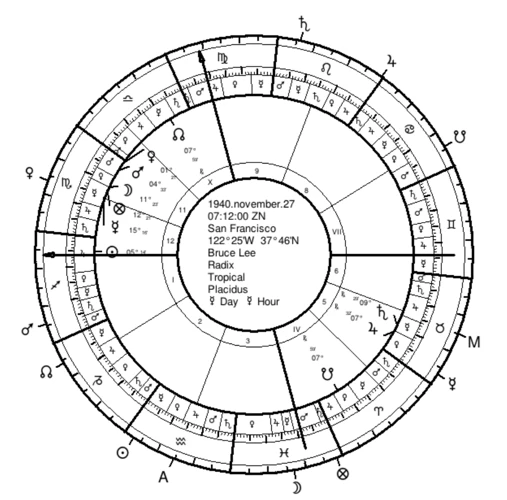
Astrology is a complex and fascinating system of divination that has been practiced for centuries. It is based on the belief that the positions and movements of celestial bodies can provide insight into human behavior and character traits. This ancient practice is founded on a deep understanding of astronomy and celestial phenomena. Astrologers analyze the positions of the sun, moon, planets, and other celestial bodies at the time of a person’s birth to determine their unique astrological profile. Each individual is associated with a specific zodiac sign based on the position of the sun at the time of their birth. These zodiac signs, also known as the twelve astrological signs, play a significant role in astrology, shaping and explaining various aspects of an individual’s life and personality. Along with the twelve traditional zodiac signs, there has been recent fascination with the inclusion of Ophiuchus as a thirteenth sign. To learn more about the significance of Ophiuchus and how it affects astrological personalities, check out this article.
1.1 What is Astrology?
Astrology is a profound field of study that seeks to understand the connection between celestial bodies and human behavior. At its core, astrology is a belief system that posits that the positions and movements of celestial bodies, such as the sun, moon, and planets, can provide valuable insights into various aspects of human life. Astrologers analyze the intricate interplay between these celestial bodies and interpret their influence on an individual’s personality traits, relationships, career prospects, and more. Astrology operates on the premise that each person’s birth chart, which is a map of the celestial positions at the time of their birth, holds crucial information about their potential strengths, weaknesses, and life path. This birth chart is then interpreted and analyzed to derive comprehensive astrological readings. Although astrology is often associated with the twelve traditional zodiac signs, there has been a growing interest in the inclusion of Ophiuchus as a thirteenth sign. If you want to explore the modern perspective and divination potential of Ophiuchus, you can find more information in this informative article.
1.2 History of Astrology
Astrology has a rich and diverse history that spans thousands of years. Its origins can be traced back to ancient civilizations such as the Mesopotamians, Egyptians, and Greeks. In Mesopotamia, astrology was intertwined with astronomy, as priests observed the movements of celestial bodies to predict events and interpret omens. The Egyptians, too, relied on astrology to forecast the flooding of the Nile River for agricultural purposes. However, it was the Greeks who further developed astrology and gave it the structure we recognize today.
During the Hellenistic period, figures like Ptolemy and Hipparchus made significant contributions to the field. Ptolemy’s work, “Tetrabiblos,” became one of the most influential astrological texts in history. The Greeks believed that individuals’ destinies were linked to the position of the stars and planets at the time of their birth, reinforcing the notion of the zodiac signs.
As astrology spread across different cultures, it incorporated elements from various civilizations, such as the zodiac system derived from the Babylonians. This system divided the celestial sphere into twelve equal segments, each representing a different zodiac sign. Over time, astrology became not only a means of prediction but also a tool for understanding personality traits, relationships, and even health.
The Renaissance period saw a resurgence of interest in astrology, with famous thinkers like Johannes Kepler and Galileo Galilei exploring its principles. However, as scientific advancements in astronomy took precedence, astrology began to face skepticism and criticism. Despite this, astrology persisted in popular culture and continues to captivate individuals seeking guidance and insight.
To delve deeper into the significance of astrology and its various zodiac signs, including the intriguing Ophiuchus, which is sometimes considered the thirteenth sign, explore this informative article. Discover the fascinating history, beliefs, and ongoing debates surrounding this ancient practice.
Understanding the Zodiac Signs
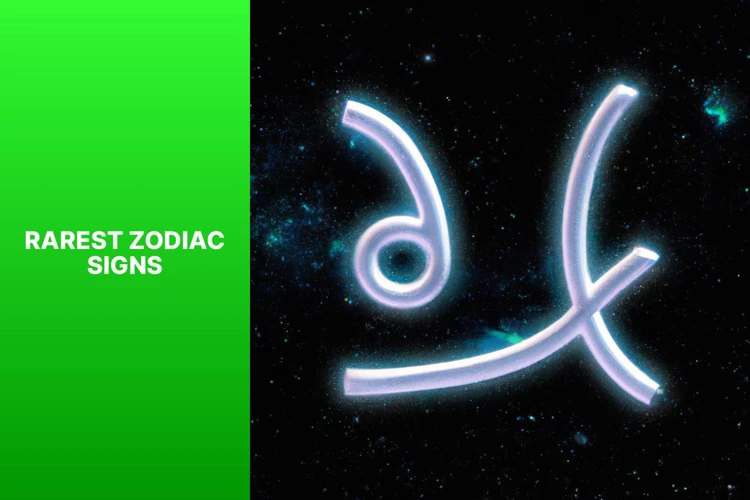
To truly delve into astrology, it is essential to have a solid understanding of the Zodiac signs. The Zodiac signs are twelve distinct divisions along the elliptical path of the sun around the Earth. Each sign is associated with specific dates and represents different personality traits, behaviors, and characteristics. A person’s Zodiac sign is determined by the position of the sun at the time of their birth. These signs are traditionally categorized as Aries, Taurus, Gemini, Cancer, Leo, Virgo, Libra, Scorpio, Sagittarius, Capricorn, Aquarius, and Pisces. Each Zodiac sign is further influenced by the elements of fire, earth, air, and water, as well as qualities, such as cardinal, fixed, and mutable. By understanding the unique traits and symbolism associated with each Zodiac sign, individuals can gain valuable insights into their own personalities and those around them. Whether you are a fiery Aries or a practical Taurus, exploring the depths of the Zodiac signs can provide a deeper understanding of ourselves and the world we live in.
2.1 What are Zodiac Signs?
Zodiac signs, also commonly referred to as astrological signs, are twelve distinct sectors of the celestial sphere that correspond to specific periods throughout the year. Each zodiac sign is associated with particular dates and is believed to carry its own unique characteristics and traits. These signs are determined by the position of the sun at the time of an individual’s birth and are categorized into four elements: fire, earth, air, and water. The fire signs (Aries, Leo, and Sagittarius) are known for their passion, energy, and enthusiasm. Earth signs (Taurus, Virgo, and Capricorn) are associated with practicality, stability, and groundedness. Air signs (Gemini, Libra, and Aquarius) represent intellect, communication, and sociability. Lastly, water signs (Cancer, Scorpio, and Pisces) are known for their emotional depth, intuition, and sensitivity. Each zodiac sign is also ruled by a specific planet, which further influences its characteristics. Understanding the significance of the zodiac signs can provide valuable insights into an individual’s personality, behavior, and compatibility with others.
2.2 The 12 Zodiac Signs
The 12 Zodiac signs are an integral part of astrology, each representing distinct personality traits and characteristics. Let’s explore each of these signs and their unique qualities:
1. Aries (March 21 – April 19): Known as the fiery and energetic pioneers of the Zodiac, Aries individuals are driven, competitive, and fiercely independent.
2. Taurus (April 20 – May 20): Ruled by Venus, Taureans are known for their practicality, determination, and love for the finer things in life.
3. Gemini (May 21 – June 20): Symbolized by the Twins, Geminis are social butterflies, adaptable, and clever individuals with a curious nature.
4. Cancer (June 21 – July 22): Cancerians are compassionate, nurturing, and highly intuitive. They can be emotional and fiercely protective of their loved ones.
5. Leo (July 23 – August 22): Represented by the Lion, Leos are natural-born leaders, confident, generous, and love to be in the spotlight.
6. Virgo (August 23 – September 22): Known for their analytical and detail-oriented nature, Virgos are practical, organized, and strive for perfection.
7. Libra (September 23 – October 22): Librans value harmony and balance, are diplomatic, and have a strong sense of justice. They are known for their charm and sociability.
8. Scorpio (October 23 – November 21): Scorpios are intense, passionate, and mysterious individuals. They possess deep emotional intelligence and are incredibly loyal.
9. Sagittarius (November 22 – December 21): Known for their adventurous spirit and love for exploration, Sagittarians are optimistic, independent, and philosophical.
10. Capricorn (December 22 – January 19): Capricorns are ambitious, disciplined, and determined individuals. They are practical and value hard work and perseverance.
11. Aquarius (January 20 – February 18): Aquarians are progressive thinkers, independent, and highly intellectual individuals with a strong sense of humanitarianism.
12. Pisces (February 19 – March 20): Represented by two fish swimming in opposite directions, Pisceans are imaginative, intuitive, and empathetic. They are known for their artistic abilities and dreamy nature.
Each Zodiac sign possesses its unique strengths, weaknesses, and archetypal qualities, providing valuable insights into an individual’s personality and journey through life.
Astrology and Zodiac Sign Compatibility
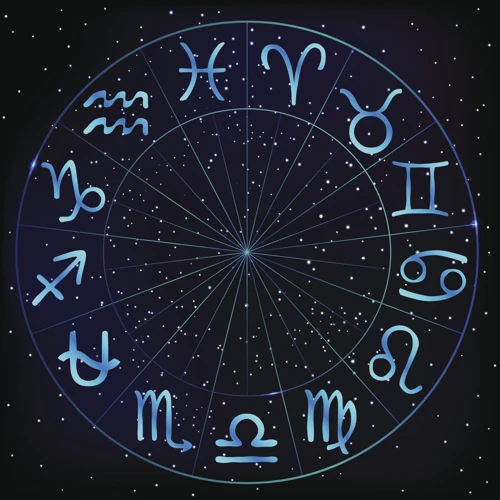
One intriguing aspect of astrology is its exploration of compatibility between different zodiac signs. According to astrological beliefs, the alignment of the stars and planets at the time of our birth can influence our compatibility with others. Each zodiac sign is said to possess unique qualities and characteristics that can either complement or clash with those of other signs. Understanding zodiac sign compatibility can offer valuable insights into relationships, whether they be friendships, romantic partnerships, or even business collaborations. By examining the elements and modalities associated with each sign, astrologers can evaluate the potential harmony or discord that may arise between individuals. While no relationship is solely determined by astrology, exploring zodiac sign compatibility can provide a fun and insightful framework for understanding the dynamics between people. To delve deeper into the intricacies of compatibility between zodiac signs, continue reading in this article.
3.1 The Influence of Zodiac Signs on Relationships
The influence of zodiac signs on relationships is a topic that has captivated the interest of many individuals seeking insights into their love lives. Astrology suggests that the alignment of the stars and planets at the time of our birth can shed light on our compatibility with others and provide valuable information about how we engage in romantic relationships. Each zodiac sign is associated with unique personality traits, strengths, weaknesses, and communication styles, all of which can impact the dynamics of a relationship.
1. Aries (March 21 – April 19): Aries is known for their passion, confidence, and fiery nature. They are natural-born leaders and require a partner who can keep up with their spontaneous and adventurous approach to life.
2. Taurus (April 20 – May 20): Taurus individuals are characterized by their loyalty, dedication, and sensuality. They seek stability and security in relationships and value trust and dependability above all else.
3. Gemini (May 21 – June 20): Geminis are known for their intellect, wit, and charming personality. They thrive on mental stimulation and need a partner who can engage them in deep conversations and keep up with their ever-changing interests.
4. Cancer (June 21 – July 22): Cancer individuals are nurturing, emotional, and highly intuitive. They value emotional connections and seek partners who can provide them with a sense of security and emotional stability.
5. Leo (July 23 – August 22): Leos are confident, charismatic, and love being the center of attention. They seek partners who can appreciate their individuality and offer them admiration and support.
6. Virgo (August 23 – September 22): Virgos are practical, detail-oriented, and highly analytical. They value loyalty, honesty, and reliability in their relationships, and seek partners who share their commitment to personal growth.
7. Libra (September 23 – October 22): Libras are known for their charm, diplomacy, and desire for harmony. They thrive in balanced relationships and seek partners who can offer them intellectual stimulation and emotional support.
8. Scorpio (October 23 – November 21): Scorpios are passionate, intense, and deeply emotional. They value loyalty and require partners who can match their level of emotional depth and offer them a sense of loyalty and trust.
9. Sagittarius (November 22 – December 21): Sagittarians are adventurous, independent, and free-spirited. They seek partners who can embrace their love for exploration and personal freedom while still providing them with a sense of stability and loyalty.
10. Capricorn (December 22 – January 19): Capricorns are ambitious, disciplined, and highly responsible. They seek partners who are equally driven and can support their goals and aspirations.
11. Aquarius (January 20 – February 18): Aquarians are known for their humanitarian nature, intellectual curiosity, and independence. They seek partners who can connect with them on an intellectual and emotional level and who share their passion for making a difference in the world.
12. Pisces (February 19 – March 20): Pisces individuals are compassionate, intuitive, and highly empathetic. They seek partners who can understand and appreciate their emotional depth and sensitivity.
However, it is important to note that while astrology can provide insights, it does not determine the success or failure of a relationship. The compatibility between two individuals depends on various factors, such as personal beliefs, values, and life experiences. It is up to each individual to navigate their relationship dynamics and work towards building a strong and fulfilling connection.
3.2 Compatibility Between Zodiac Signs
When it comes to relationships, understanding the compatibility between different zodiac signs can provide valuable insights. Each zodiac sign has unique characteristics and traits that can either harmonize or clash with the traits of other signs. In astrology, compatibility is often assessed based on the elements and qualities associated with each sign. The four elements—fire, earth, air, and water—represent different personality traits. Fire signs (Aries, Leo, Sagittarius) are known for their passion and energy, while earth signs (Taurus, Virgo, Capricorn) are grounded and practical. Air signs (Gemini, Libra, Aquarius) are intellectual and social, while water signs (Cancer, Scorpio, Pisces) are emotional and intuitive. Generally, signs from the same element tend to be compatible due to their shared characteristics. However, there are also instances of signs from different elements forming strong connections. For example, fire and air signs often have a natural synergy, as fire fuels air, and the two elements can ignite each other’s passions. On the other hand, air and earth signs may find it challenging to understand each other’s priorities, as air seeks mental stimulation while earth focuses on practicality. Understanding the compatibility between zodiac signs can be a helpful tool in navigating relationships and fostering a deeper understanding of oneself and others.
The Power of Astrological Predictions
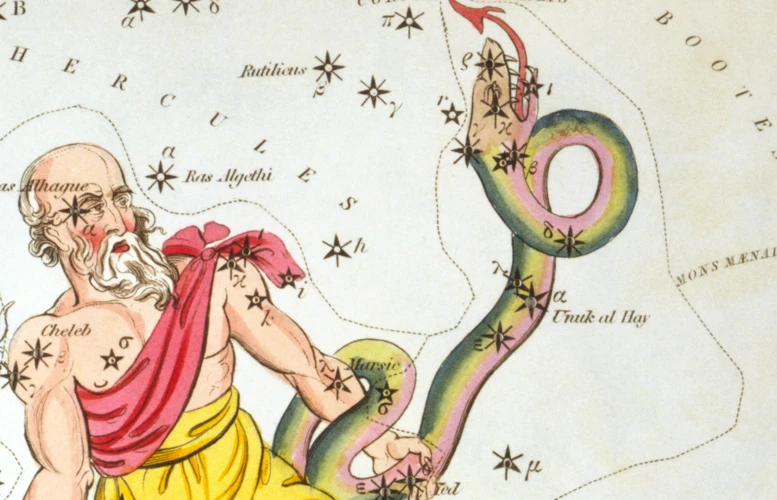
Astrology is often seen as an ancient tool for predictions, offering insights into the future and guiding individuals towards making informed decisions. By studying the unique alignment of the planets and their influence on the zodiac signs, astrologers are believed to tap into cosmic energies that can help predict various aspects of life, including career, relationships, and personal growth. Astrological predictions are not set in stone but provide potential paths and possibilities, allowing individuals to gain a deeper understanding of themselves and the circumstances they may encounter. These predictions can be empowering, providing a sense of direction and guidance in navigating life’s uncertainties. Astrology goes beyond mere fortune-telling, as it also delves into the connection between zodiac signs and personality traits. By understanding how different zodiac signs manifest certain characteristics, individuals can gain insights into their own strengths, weaknesses, and motivations. This self-awareness can be invaluable in personal growth and improving interpersonal relationships. Whether one fully believes in the power of astrological predictions or not, there is no denying the impact and influence it has had on countless individuals seeking guidance and clarity in their lives.
4.1 Astrology as a Tool for Predictions
Astrology has long been regarded as a powerful tool for making predictions about various aspects of life. By analyzing the placement and movements of celestial bodies, astrologers believe they can gain insight into future events and outcomes. While astrology cannot predict specific events with absolute certainty, it can offer valuable guidance and foresight based on the energy patterns and influences associated with different zodiac signs and celestial alignments. Astrologers use various techniques, such as birth charts and transits, to interpret celestial positions and their potential impact on an individual’s life. These predictions can cover a wide range of areas, including love and relationships, career and finances, health, and personal growth. However, it’s important to note that astrology is not deterministic and should be used as a tool for self-reflection and personal development rather than relying solely on predictions. It provides a framework for understanding potential energy influences, allowing individuals to make more informed decisions and navigate life’s challenges more effectively. Additionally, astrology can also help individuals identify favorable periods for pursuing specific goals and align their actions with cosmic energies. Its predictive capabilities, combined with its introspective nature, make astrology a fascinating and insightful tool for those seeking guidance and self-discovery.
4.2 How Zodiac Signs Affect Personality Traits
The influence of zodiac signs on personality traits is a captivating aspect of astrology. Each zodiac sign is associated with specific characteristics and qualities that shape an individual’s personality. These traits are believed to be influenced by the positioning of celestial bodies at the time of a person’s birth. For example, Aries individuals are known for their assertiveness, confidence, and leadership qualities, while Taurus individuals tend to be grounded, practical, and dependable. Gemini individuals are often seen as adaptable, curious, and sociable, while Cancer individuals are known for their nurturing nature, emotional sensitivity, and loyalty. The zodiac signs continue to exert their influence on personality traits as one moves further along the astrological wheel. Leo individuals are often characterized as vibrant, confident, and charismatic, whereas Virgos are perceived as detail-oriented, analytical, and practical. Libra individuals are known for their diplomatic approach, harmony-seeking nature, and focus on fairness, while Scorpios are recognized for their intensity, passion, and depth. Sagittarius individuals are often adventurous, open-minded, and philosophical, while Capricorns are seen as disciplined, ambitious, and responsible. Aquarius individuals are known for their originality, independence, and humanitarian nature, whereas Pisces individuals are often described as compassionate, intuitive, and artistic. While these generalizations provide a broad understanding of how zodiac signs may impact personality traits, it is essential to remember that each person’s birth chart consists of multiple planetary placements and aspects that further influence their individuality. The interaction between zodiac signs and personality traits can vary greatly from person to person. It is the unique combination of astrological factors that ultimately defines an individual’s personality and character traits.
Astrology versus Astronomy
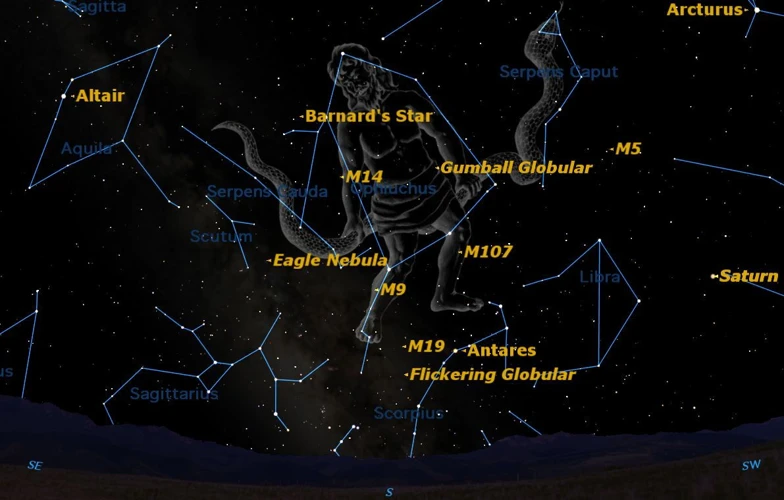
Astrology and astronomy are often used interchangeably, but they are fundamentally different disciplines. While both study celestial bodies, their approaches and objectives vary greatly. Let’s delve into the distinctions between astrology and astronomy:
1. Objectives: The primary goal of astronomy is to understand the universe objectively, focusing on the scientific study of celestial objects, their composition, and their physical properties. Astronomy aims to explain natural phenomena and uncover the laws governing the universe. Astrology, on the other hand, is concerned with the influence of celestial bodies on human behavior and events on Earth. Its objective is to provide insights into personality traits, relationships, and future predictions based on the positions of celestial bodies.
2. Methodology: Astronomy employs rigorous scientific methods, including observation, experimentation, and mathematical calculations. Astronomers use advanced telescopes, space probes, and other instruments to gather data and make scientific discoveries. Astrology, on the other hand, relies on the interpretation of astrological charts and the positions of celestial bodies at specific times and locations. Astrologers analyze patterns and correlations to make predictions and provide guidance.
3. Scientific Basis: Astronomy is considered a scientific discipline because it adheres to empirical evidence and is subject to rigorous testing and peer review. It follows the laws of physics and relies on scientific models and theories to explain celestial phenomena. Astrology, on the other hand, lacks scientific validation and is largely based on interpretations, beliefs, and cultural traditions. While astrology has its roots in ancient observations, it does not meet the criteria for a scientific field.
It’s important to distinguish between the two disciplines and understand their contrasting approaches. While astronomy strives to uncover the mysteries of the universe through scientific inquiry, astrology serves as a tool for personal reflection, guidance, and interpretation of celestial influences.
The Influence of Astrology in Popular Culture
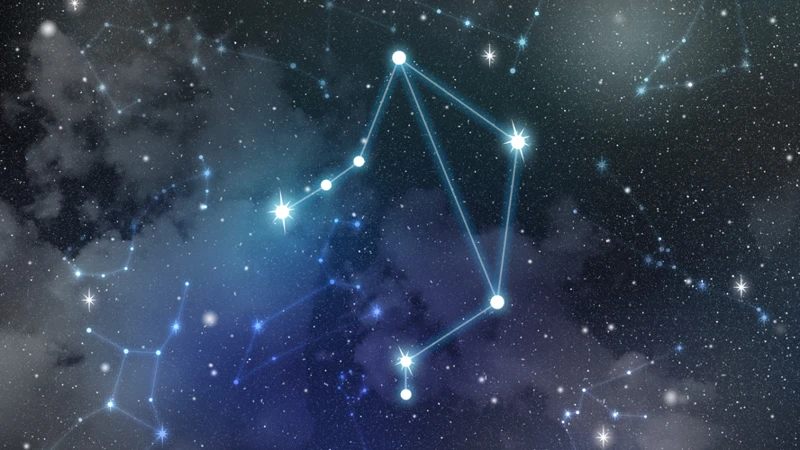
Astrology has undoubtedly left its mark on popular culture, seeping into various forms of entertainment and media. Films and TV shows often feature characters who consult astrologers or make decisions based on their zodiac signs. Some notable examples include the hit TV show “The Big Bang Theory,” where the character Sheldon Cooper’s astrological sign, Taurus, is frequently mentioned, and movies like “Serendipity,” where the characters rely on astrology to find their soulmates. Astrology has also influenced literature and art, with many authors incorporating astrological symbolism in their works. From Shakespeare’s references to the zodiac signs in “Romeo and Juliet” to Salvador Dali’s surrealistic paintings infused with celestial imagery, astrology has become deeply embedded in our cultural landscape. This widespread influence of astrology in popular culture showcases its enduring fascination and impact on society, whether people believe in its accuracy or view it as mere entertainment.
6.1 Astrology in Films and TV Shows
Astrology has had a significant impact on popular culture, with its presence being felt in various films and TV shows. Hollywood has often incorporated astrological themes and references, exploring the mystical and enchanting aspects of astrology. In the film “Zodiac” directed by David Fincher, the story revolves around the search for the notorious Zodiac killer, with astrological symbols playing a vital role in deciphering the killer’s motivations. Similarly, the TV show “Sense8” by the Wachowskis incorporates astrology as a means for the telepathically connected characters to understand their interconnectedness. Astrology also appears in lighter genres, such as the romantic comedy “Love Actually,” where one character seeks advice from an astrology column to navigate her love life. It is not just limited to movies and TV shows, but astrology has been prominent in animated series as well, like “Sailor Moon,” where each character is associated with a different Zodiac sign. The presence of astrology in popular culture reflects its widespread intrigue and the fascination people have with understanding themselves and their relationships through astrological principles.
6.2 Astrology in Literature and Art
Astrology has had a significant impact on both literature and art throughout history. Many renowned authors and poets have incorporated astrological themes into their works, adding depth and symbolism to their storytelling. One notable example is William Shakespeare, who often referenced astrological concepts in his plays. In “Romeo and Juliet,” Shakespeare mentions the influence of the stars on the fated love of the young protagonists. Similarly, astrology is a recurring theme in Dante Alighieri’s “Divine Comedy,” where he assigns astrological significance to different levels of his imagined afterlife. In art, astrology has been a popular subject for centuries. Paintings often depict astrological symbols and zodiac signs as a way to convey deeper meanings and messages. The famous painting “Primavera” by Sandro Botticelli incorporates astrological symbolism, with each figure representing a different zodiac sign. The use of astrology in literature and art allows artists to explore themes of fate, destiny, and the interconnectedness of the universe. It adds an element of mystery and intrigue, inviting audiences to ponder the cosmic forces that shape our lives.
The Controversies Surrounding Astrology
Astrology, while intriguing and widely popular, is not without its share of controversies. The scientific community often criticizes astrology, arguing that its principles are not based on empirical evidence and do not align with established scientific methods. Skeptics argue that the positioning of celestial bodies has no direct influence on human behavior or personality traits. Additionally, some question the generalizations made by astrology, as people with the same zodiac sign can have vastly different experiences and personalities. However, it’s important to note that astrology’s significance often lies in personal belief and interpretation. For many individuals, astrology provides comfort, guidance, and a sense of self-discovery. The controversy surrounding astrology reflects the ongoing debate between scientific scrutiny and personal belief systems, highlighting the complex relationship between science and spirituality.
7.1 Scientific Criticism of Astrology
7.1 Scientific Criticism of Astrology
Scientific criticism of astrology stems from the fact that it lacks empirical evidence and scientific validation. Critics argue that astrology’s predictions are often general and vague, making it easy for individuals to find personal relevance in them through subjective interpretation. Scientific studies have failed to establish a causal relationship between celestial positions and human behavior, further eroding astrology’s credibility. Skeptics assert that astrology’s claims of influence, especially individual horoscopes, are unfalsifiable and lack a proper scientific framework. They argue that astrology relies on confirmation bias, where individuals tend to focus on information that confirms their preexisting beliefs and overlook contradictory evidence. Additionally, scientific critics argue that astrology lacks a consistent methodology and fails to provide any measurable or repeatable results. Despite these criticisms, astrology continues to be popular among many individuals who find value in the insights and guidance it offers.
7.2 The Role of Personal Belief in Astrology
The Role of Personal Belief in Astrology:
– Personal belief plays a crucial role in astrology, as it is the foundation upon which individuals engage with and interpret astrological concepts. The belief in astrology varies greatly among people, ranging from staunch believers who rely heavily on astrological predictions to skeptics who dismiss it as mere superstition.
– For believers, astrology provides a sense of guidance and validation, offering insights into their personality traits, relationships, and life events. They view astrology as a tool for self-reflection and self-improvement, embracing the idea that celestial bodies can influence their lives and decisions.
– Skeptics, on the other hand, often attribute astrological interpretations to coincidences or subjective reasoning. They question the scientific validity of astrology and argue that its predictions are vague and applicable to a broad range of individuals.
– However, it is important to remember that personal belief is subjective and varies from person to person. Some individuals may find comfort and meaning in astrological readings, while others may view it as nothing more than entertainment. Ultimately, the role of personal belief in astrology is a deeply personal choice, shaping how individuals perceive and interact with the ancient practice.
Conclusion
In conclusion, astrology and the Zodiac signs offer a captivating lens through which we can explore and understand ourselves and our place in the universe. Whether one believes in the power of celestial influence or views astrology as mere entertainment, it is undeniable that astrology holds a significant place in popular culture and has sparked countless discussions and debates. For centuries, astrology has provided guidance, comfort, and a sense of connection to something greater than ourselves. It has helped people navigate relationships, make life decisions, and gain insights into their own unique personalities. While there are scientific criticisms of astrology, it is important to recognize that personal belief plays a significant role in how individuals engage with this ancient practice. Astrology continues to thrive in films, TV shows, literature, and art, showcasing its enduring impact on our society. As we journey through the universe, the mysteries of astrology and the Zodiac signs will continue to captivate and inspire us, inviting us to explore the depths of our own beings and the boundless possibilities that lie ahead.
Frequently Asked Questions
1. What is the difference between astrology and astronomy?
Astrology is the study of the influence of celestial bodies on human behavior and personality, while astronomy is the scientific study of celestial objects and phenomena.
2. Can astrology predict the future?
Astrology is often used as a tool for predictions. However, it is important to remember that astrology focuses on potential influences and tendencies rather than definite future outcomes.
3. What are the twelve Zodiac signs?
The twelve Zodiac signs are Aries, Taurus, Gemini, Cancer, Leo, Virgo, Libra, Scorpio, Sagittarius, Capricorn, Aquarius, and Pisces. Each sign is associated with specific traits and characteristics.
4. Are Zodiac signs solely determined by birthdate?
While the Zodiac signs primarily correspond to birthdates, the specific time and location of birth also play a role in determining an individual’s Zodiac sign.
5. Can Zodiac signs affect compatibility in relationships?
Astrologers believe that Zodiac signs can provide insights into the compatibility between individuals. However, it’s important to remember that compatibility relies on various factors beyond just Zodiac signs.
6. What is the significance of Ophiuchus in astrology?
Ophiuchus is often referred to as the thirteenth Zodiac sign. While it is not widely recognized in traditional astrology, some astrologers believe that Ophiuchus represents an additional aspect of one’s astrological profile.
7. Is astrology considered a science?
Astrology is not considered a science by the scientific community. It is regarded as a pseudoscience, as its principles and claims cannot be empirically tested or proven.
8. How does astrology influence personality traits?
Astrology suggests that the positions of celestial bodies at the time of birth can influence an individual’s personality traits and characteristics. However, it’s important to note that there are various other factors that shape personality as well.
9. Are there any famous examples of astrology in popular culture?
Astrology has influenced popular culture in many ways. For example, the zodiac signs are often referenced in films and TV shows, and many famous artists and writers have incorporated astrological themes into their works.
10. Can astrology be scientifically criticized?
Scientific criticism of astrology focuses on the lack of empirical evidence supporting its claims and the inability to replicate astrological predictions in controlled experiments. However, personal beliefs and cultural significance still play a role in its continued popularity.

